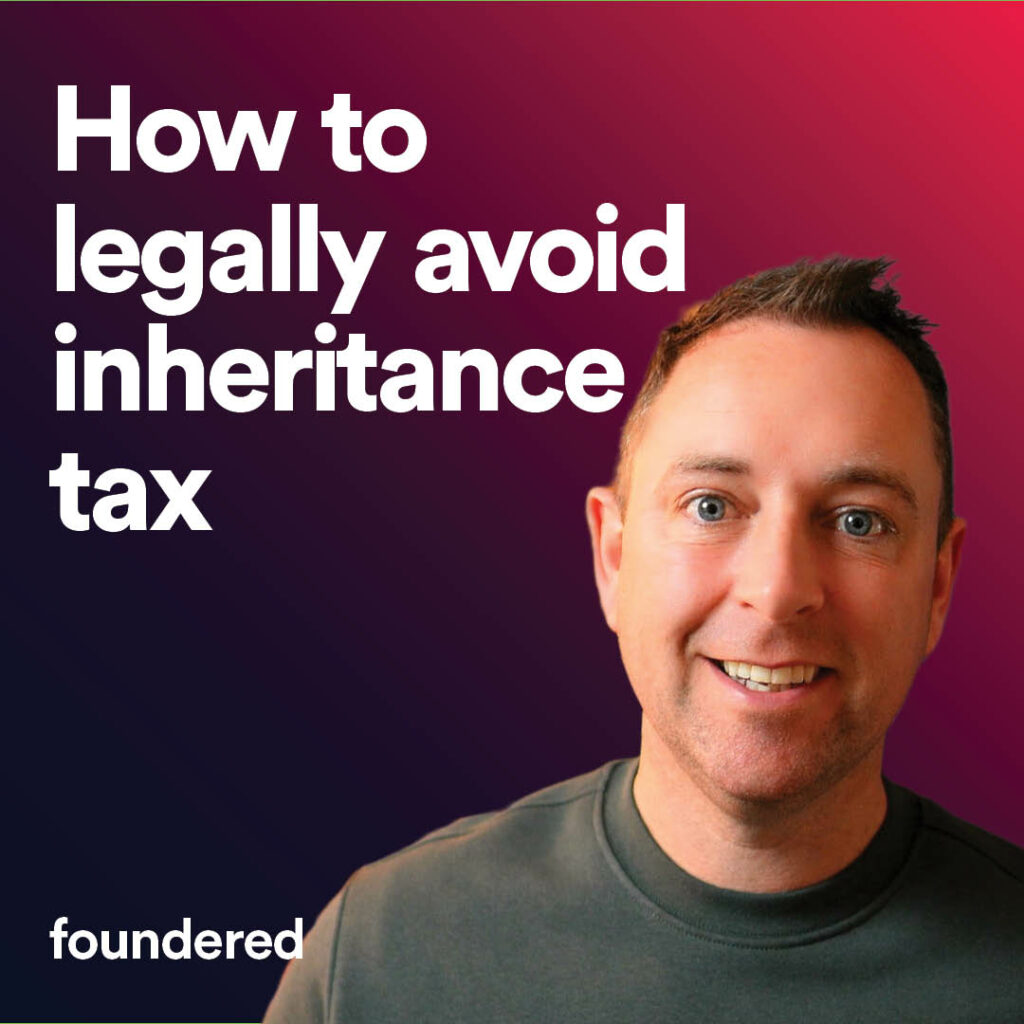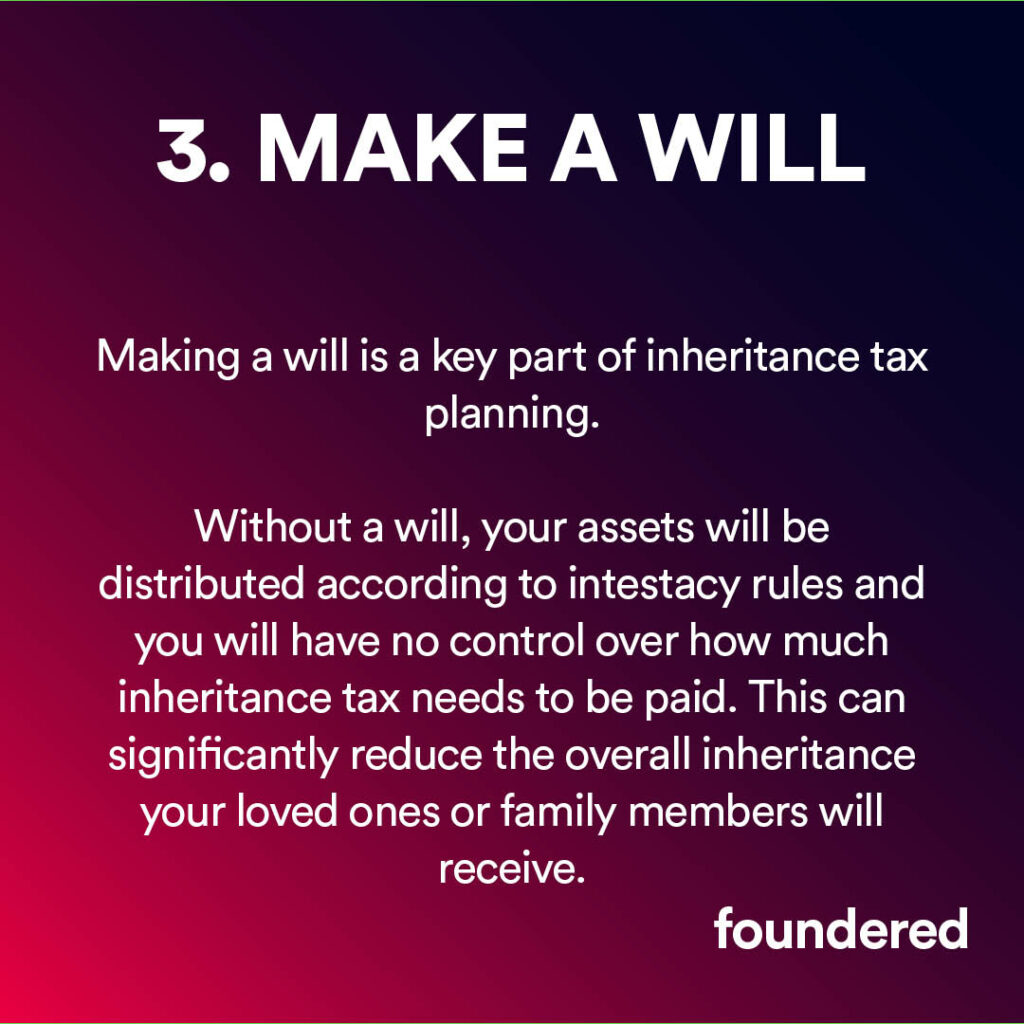As I talk about money ….. a lot, people often ask me questions about hot topics. Interest rate rises, inflation and the cost of living crisis, I get them all. But there’s no topic that gets people hotter under the collar than inheritance tax. And this definitely intensifies as people get older.
Hands up if you like inheritance tax. Nope, me neither.
Until recently inheritance tax fell squarely at the feet of the wealthy in society. And some would argue that it should. But nowadays as property prices are reaching new highs, and the threshold of inheritance tax being frozen for over 20 years, more and more families across the country are likely to be caught in the inheritance tax trap. And that sucks.
Well unless you’re the king or queen because under a clause agreed in 1993, any inheritance passed “sovereign to sovereign” avoids the 40% levy applied to assets valued at more than £325,000. All £15.2bn of it.
“in this world, nothing can be said to be certain, except death and taxes”
Benjamin Franklin
And this is true for each of us, well except for Charles and the future generations of his family. But enough of the sour grapes Connor. We are all going to die and we must pay taxes. However, there are legal ways to avoid inheritance tax and reduce the amount you have to pay. In this article, I’m going to look at each of these in-depth.
Why is the inheritance tax level important?
When someone dies, their possessions and wealth (estate) is valued. If this value is greater than the inheritance tax threshold of £325,000, the tax will be charged at the rate of 40% on anything above this amount.
If you follow stories in the press, you’ll see that we’re paying more inheritance tax than any other point. In fact, the HMRC collected £6.1bn in 2021-22, up 14 per cent from the previous year.
The reasons for this are 2 fold:
- The inheritance tax threshold has been frozen for over 20 years at £325,000
- Property prices have grown significantly.
Let’s look at this a little more actually.
Inheritance tax freeze
If we were to look at inflation from 2002 through to 2023, the pound had an average inflation rate of 3.55% per year during this period which means that in today’s money, the £325,000 threshold should be more like £676,441.15.
Inflation erodes your wealth and when the tax threshold is frozen and not increased in line with this, you are effectively taxed more. This is incredibly important as the value of £325,000 today is nowhere near what it was in 2002. And the Government has frozen the inheritance tax (IHT) thresholds for two more years. As the threshold was already frozen until April 2026, it now means that the threshold is now frozen until April 2028. With inflation being at record levels, the true value of £325,000 is significantly less.
The second reason why thresholds matter to you and I, is that property prices have skyrocketed over the same period.
Property price increase affecting inheritance tax
According to https://www.statista.com/ the average house price in 2002 was £128,000. In 2022, the average house price sits at £340,000. For an average family, the cost of their home already surpasses the inheritance tax limit. With the property increases over the past 2 decades, the average household wealth has significantly increased and a significant proportion of this is held within the main residence.
Average house price 2022 – £340,000
Average house price 2002 – £128,000
According to Nimblefins https://www.nimblefins.co.uk/savings-accounts/average-household-savings-uk the average total household wealth in 2022 is around £576,000 and this includes:
- Financial wealth (net). The value of financial assets held including formal investments (e.g., current or saving accounts, investment vehicles such as ISAs, endowments, stocks and shares) and informal savings.
- Physical wealth. The self-reported value of owned household contents, possessions and valuables, including antiques, art, collections and any vehicles owned by individuals.
- Private pension wealth. The value of pension pots already accrued that are not state basic retirement or state earning related, including occupational pensions, personal pensions, retained rights in previous pensions and pensions in payment.
- Property wealth (net). The self-reported value of any property owned, including a main residence plus any other land or property owned in the UK or abroad.
As you have no doubt figured out, the combination of property price increases and the freeze on the inheritance tax threshold puts a significant proportion of the population into the zone of paying 40% on anything inherited over £325,000.
If we use the average total household wealth as an indicative figure, then your bill for inheritance tax could be over £100,000.
“You must pay taxes. But there’s no law that says you gotta leave a tip.”
Morgan Stanley Advertisement
And this is the purpose of today’s article. There are many legal ways to reduce the amount of inheritance tax charged on your estate. Some of these may not be relevant to you and some won’t, but knowledge is power when it comes to taxation and this should be the starting point on your journey.
How to avoid inheritance tax
The important thing to remember is that taxes are built on rules. Following the rules at all times will ensure you stay on the right side of the HMRC, while legally reducing the amount you need to pay.
As I’ll point out shortly, time is a huge factor when it comes to inheritance taxation. Many of those reading this article will be in their 30s or 40s. It can obviously come across as self-serving to show an article like this to your ageing parents, but I promise you they’d rather you have the money than the tax man. If nothing else, this will start the conversation
For the ageing parents reading this article, always ensure you look after yourself first and foremost. But when you know you have enough to survive, it might be time to start dispersing your wealth.









1. Make gifts
The easiest way to avoid an inheritance tax bill is to give away your assets throughout your life. When we talk about this, most people initially think of cash gifts and that is a large part of it. However, buying assets or making purchases are equally valid ways of passing wealth through the generations. Types of gifts include:
- money
- household and personal goods, for example, furniture, jewellery or antiques
- a house, land or buildings
- stocks and shares listed on the London Stock Exchange
- unlisted shares you held for less than 2 years before your death
The gifts noted above must come from your surplus income, so not from the sale of a property for example. The gifts must not alter your lifestyle significantly. However, on top of this, every individual can be gifted an additional £3,000 per year and this can be carried forward for one tax year. So £6,000 could be gifted now for the past 2 years. And that gift amount does include spouses/children.
Another opportunity for gifting is that you can give a tax-free gift to someone who is getting married. With this type of gift, you can give up to £5,000 to a child or £2,500 to a grandchild or great-grandchild. And you can combine the gifts also: For example, you can give your child a wedding gift of £5,000 as well as £3,000 using your annual exemption in the same tax year.
The benefit of providing gifts in this way means that you can slowly pass on your wealth over multiple years. This helps you to maintain a level of budget that will keep your own finances in order while doing so.
The 7-year rule
You can of course gift more than the thresholds above, but these gifts are subject to time-based taxation rules. The most important bit is that no tax is due on any gifts you give if you live for 7 years after giving them.
This is known as the 7-year rule.
There is taper relief on the tax on the gift based on the years between the gift and death.
| Years between gift and death | Rate of tax on the gift |
| 3 to 4 years | 32% |
| 4 to 5 years | 24% |
| 5 to 6 years | 16% |
| 6 to 7 years | 8% |
| 7 or more | 0% |
Taper relief only applies if the total value of gifts made in the 7 years before you die is over the £325,000 tax-free threshold.
If you’re planning to give gifts, the earlier you do so, the less likely those receiving them are likely to pay the tax man for the privilege.
2. Spend your money
You’ve worked hard and you are entitled to spend your money how you see fit. This could be holidays, or paying for meals. In fact, it could be an infinite number of ways you choose to spend your money. And who am I to disagree if you bring people together to share on these occasions?
No one wants to be the richest person in the graveyard, so spend your money making memories that last generations. Your children and your children’s children will thank you for the time you spend with them greater than any money you will one day leave.
3. Make a will
Making a will is a key part of inheritance tax planning and is the best way to reduce or completely avoid inheritance tax.
Without a will, your assets will be distributed according to intestacy rules and you will have no control over how much inheritance tax needs to be paid. This can significantly reduce the overall inheritance your loved ones or family members will receive.
4. Leave money to charity
Any sum you leave to a UK-registered charity will be free from inheritance tax. The same goes for gifts to political parties, or to amateur sports clubs. What’s more, if you give at least 10% of your net estate to charity, you may qualify for a reduced rate of 36% inheritance tax for the rest of your estate.
5. Buy a funeral plan
Paying for your own funeral sounds morbid as hell. But in fact, it’s a great move and more people are looking at this option to save on inheritance tax.
If you pay for your own funeral upfront and this costs £5,000. Then that’s £5,000 that will come from the total of your estate. Whereas if your estate is over £325,000 and this was to be paid by those who inherited it, the value of the money that would be needed to pay the £5,000 would be £8333.33 before taxation.
Of course, it could be paid by tax-free money, but that would be using up your allowance and you’d be paying tax on anything above £325,000. Look, from a financial viewpoint it’s better for you to pay for your funeral and not your children.
6. Make use of business relief
For the entrepreneurs and company owners among us, Business Relief allows you to exclude certain assets, such as company shares, machinery and property, from being taxed as part of your estate. You can get Business Relief of either 50% or 100% on some of an estate’s business assets and this means that the value of these assets won’t be taken into account when determining your inheritance tax liability.
Final thoughts
Death is inevitable. As is tax. But how we go and how much tax we pay when we eventually die can often be simplified to the choices we make earlier in our lives.
Of course, you could go out tomorrow and get hit by a bus. In that case, my only advice is to ensure you have a will made today, as this is the most important factor in how your estate is distributed without direction from the taxman.
Taking the time to prepare your estate for the next generation and distribute it early will ensure you save as much on taxes as possible. But always remember to look after yourself first.
Want to watch this article as a video, head over to the Foundered Money YouTube channel.


